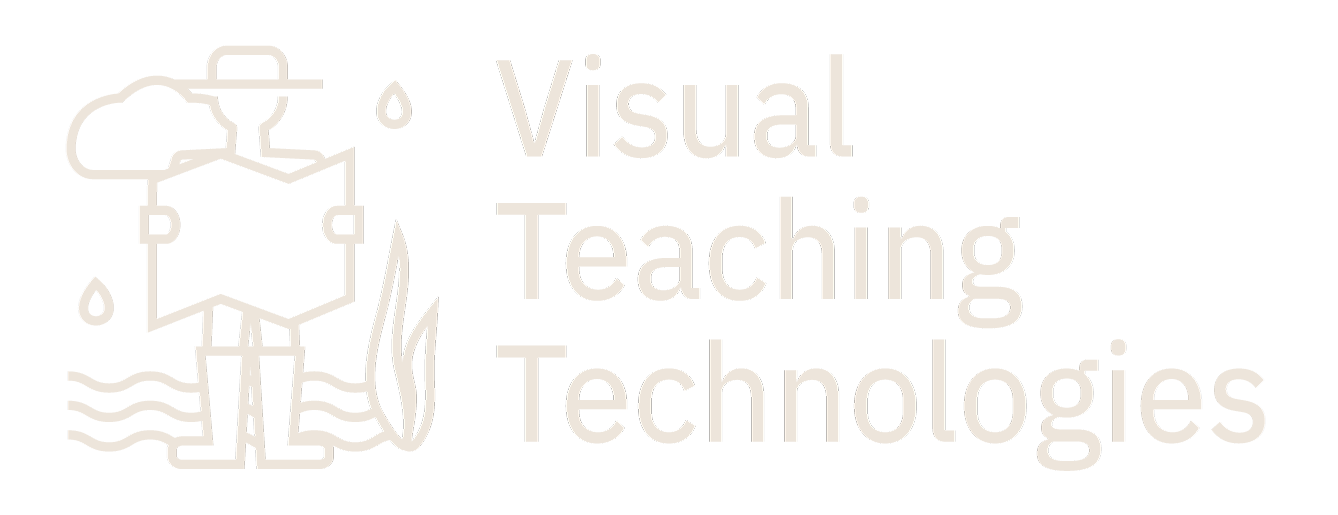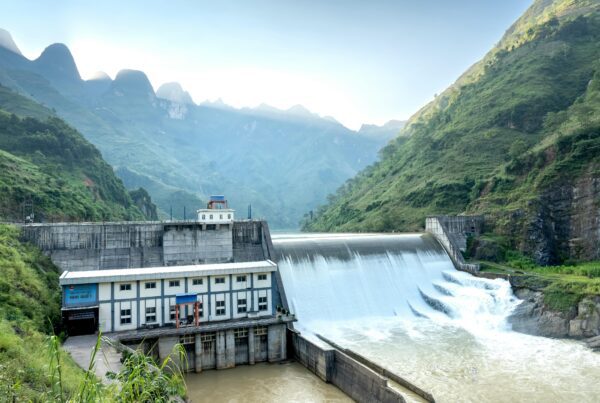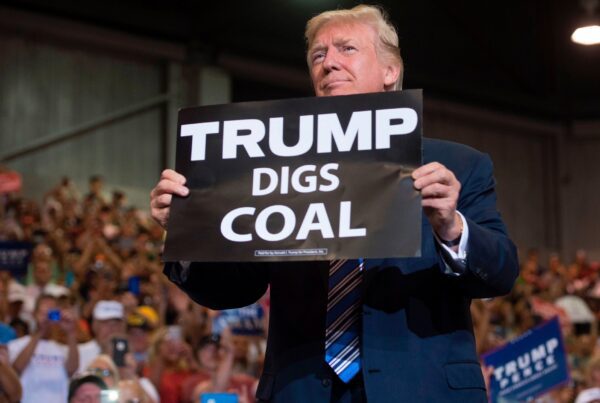Though it is unpleasant to acknowledge, we are in the climate crisis and we need to act now. Addressing the climate crisis needs to happen through international collaboration and collective action.
While there are many global initiatives aimed at reducing current and future climate change consequences, there is no universal consensus on what action needs to be taken.
In recent years as more attention and awareness has been brought to climate change impacts, actions have shown who is taking this issue seriously.
It is important to note that the actions causing and consequences of climate change are not distributed equally, widening pre-existing global inequalities. Least Developed Countries (LDC’s) are particularly vulnerable to climate change often relying on water dependent agricultural, forestry, and fishing sectors as a main driver of their economies.
At the same time, it is the More Developed Countries (MDC’s) that have contributed the most towards and reaped the benefits of climate damaging activities. Climate change is linked to not only environmental instability, but also to poverty, food insecurity, economic instability, conflict, displacement and so much more.
In 1979 climate change was recognized as a serious threat by the First World Climate Conference. This was the first international initiative calling on world governments to mitigate adverse impacts of man-made climate change.
After this global movement, climate change gained international concern as well as additional scientific and social research focus. In 1992 the UN Framework Convention on Climate Change (UNFCCC) was adopted with the aim to reduce contribution to climate change eventually added by the 1997 Kyoto Protocol and the 2015 Paris Agreement.
For years, the international community has come together to agree upon climate measures and set goals to prevent even further contribution to the crisis. While there has not always been perfect alignment, recently opposing stances on the issue have become more apparent.
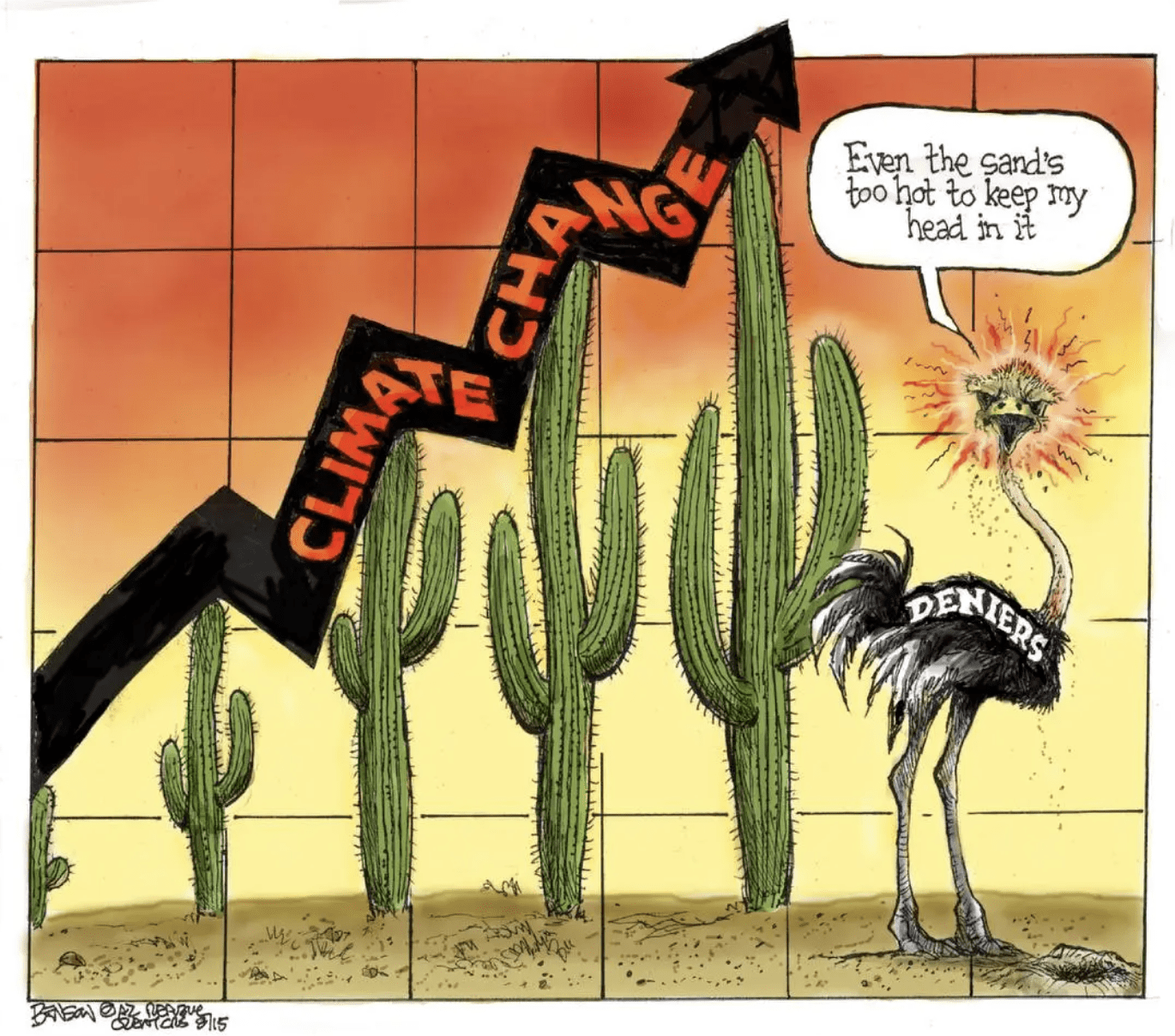
Europe has stayed its course on its climate stance having legally committed to the 2015 Paris Agreement and the 2020 European Green Deal.
The Paris Agreement aims to limit the global temperature increase to 1.5 C, and the European Green Deal commitment to be climate neutral, meaning no net greenhouse gas emissions, by 2050. This timeline requires that emissions be reduced by 45% by 2030.
By Europeans, climate change is seen as the third largest problem facing the world. According to a 2023 survey 93% of EU citizens see climate change as a serious problem and 77% as a very serious problem.
This commitment reflects a climate stance quite different from that of the US with 67% of Americans agreeing that protecting the environment for future generations is very important and 25% agreeing that it is somewhat important.
Findings from the Yale Program on Climate Change Communication shows that while many Americans are concerned about global warming, only 58% believe this will impact them in the next 10 years.
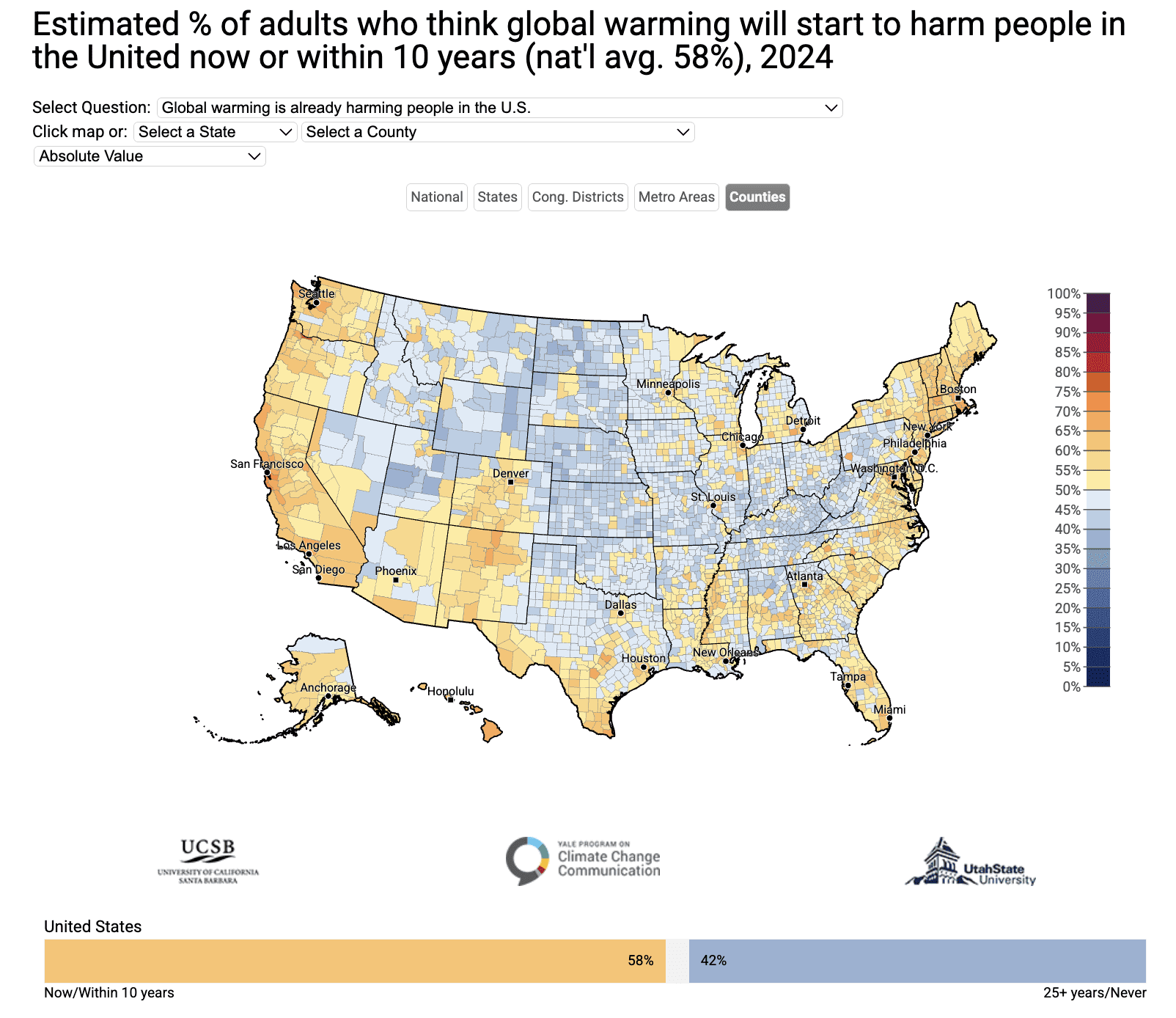
While these commitments may seem significant, Greta Thunberg pointed out at the UN Climate Action Summit in 2019 that cutting emissions in half in the next 10 years still only gives a 50% chance of staying below a 1.5 C increase and risks setting off irreversible chain reactions.
This probability does not include tipping points, most feedback loops, and additional warming hidden by toxins. The common underplaying of the urgency of the current situation can make it feel like any small step is enough.
Regardless of the inconvenience, it is time for big steps. Though the US doesn’t view climate change as significant as the EU, it wouldn’t be true to say that the US hasn’t taken climate action.
In 2014, the US and China together declared their emission targets and committed to expand their cooperation on clean energy technologies. In 2015, The Clean Power Plan, under the Obama administration set the first ever limits on carbon pollution from US power plants. In that same year, the US and India announced cooperation on clean energy and the US and Brazil made a joint statement reinforcing the urgency of addressing climate change.
In recent months, the US has made many significant changes in its stance on climate action. Within weeks of President Trump’s inauguration, the US has rolled back regulations protecting the climate including limits to pollution from tailpipes and protection for wetlands and has reduced federal climate efforts by impounding federal grants.
Through Executive Orders and Department of Government Efficiency (DOGE) efforts, the Trump administration is making drastic cuts to departments, agencies like the National Oceanic and Atmospheric Administration (NOAA) and the Environmental Protection Agency (EPA) and firing many of the federal workforce dedicated to climate change research and action.
On inauguration day, President Trump withdrew the United States from the Paris climate agreement making it one of now four countries not part of the Paris agreement: United States, Iran, Libya, and Yemen.
In addition to pulling out of the Paris Agreement, in March of 2025 the Trump administration has stated that it “rejects and denounces” the Sustainable Development Goals (SDGs), which were unanimously adopted by all 193 U.N. member nations in 2015. These 17 goals encompass a variety of areas, including climate action,ending poverty, health and education, and gender equality, in an action plan for ‘people, planet, and prosperity’.
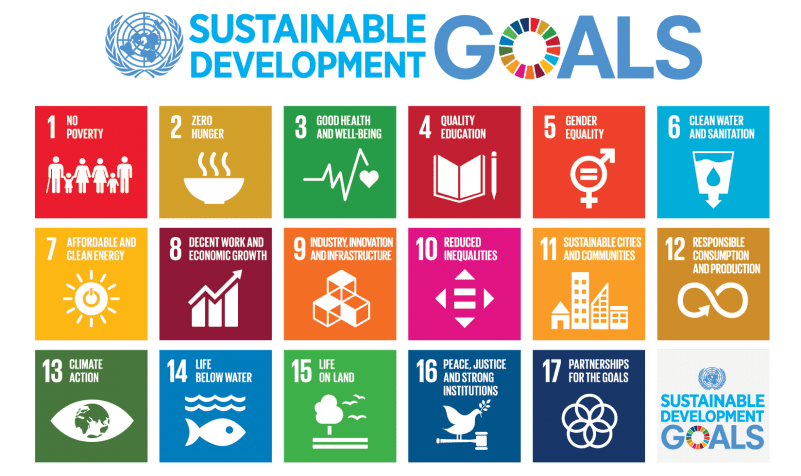
The adjustment in the American climate approach has been dramatic, going farther than withdrawing from climate agreements into actively discouraging any climate action.
President Trump has made many varying statements on climate change, calling it a ‘serious subject’ and stating that he ‘wants the cleanest water, [he] wants the cleanest air’ while also dismissing concerns as ‘alarmist’ saying the issue is ‘nonexistent’.
In 2025, Chris Wright, an executive of a fracking company, was nominated by President Trump as the US Secretary of Energy. Shortly after his confirmation, Wright has committed to a significant pivot from the Biden administration’s energy policies, arguing that natural gas is preferable to renewable energy as climate change is a ‘side effect of building the modern world’.
Trump has supported these ideas, going so far as to say ‘drill, baby drill’. This is particularly alarming as the US is among the largest greenhouse gas emitters.
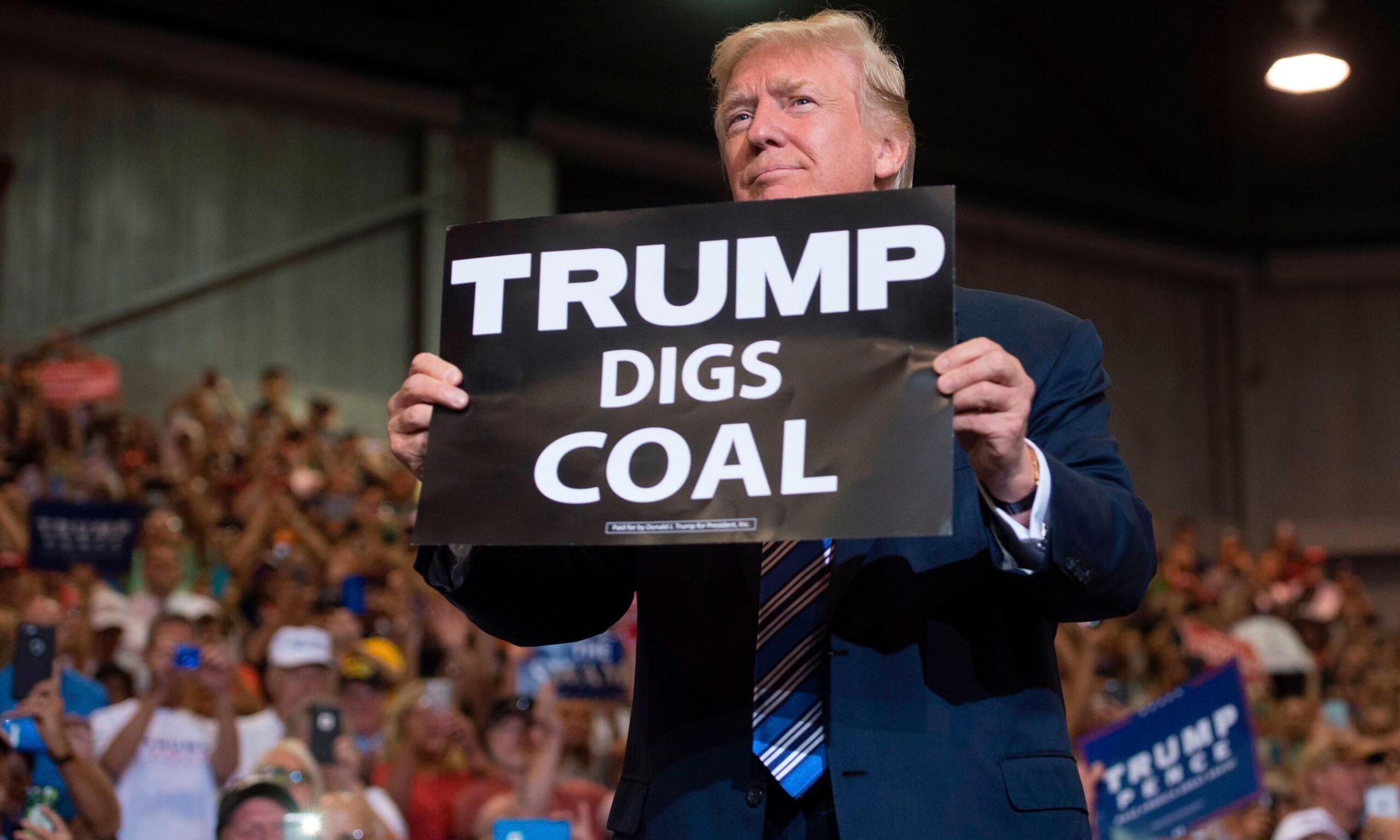
President Trump supports fossil fuel extraction at all costs. Source: Saul Loeb/AFP/Getty.
Despite widespread consensus among the scientific community and international governmental bodies that climate change is in fact a relevant and urgent issue, there are still significant amounts of climate change denialists.
This may seem like an oddity, but this is not random. The climate change denial movement has been funded by wealthy donors, often remaining anonymous if they can, to control the public perception of climate change.
This type of story capture is quite similar to the efforts of tobacco companies to prevent action on the health impacts of smoking regardless of the damning evidence of the consequences.
Individuals who benefit from the fossil fuel industry, amongst many other environmentally damaging industries, have incentive to reduce public desire to combat climate change and have been heavily funding the climate denial movement for years.
This narrative is pushed through biased funded research, books, and articles along with lobbying. These tactics have been very effective.
According to the World Economic Forum, in 2020, 30% of North Americans believed that climate change was a result of natural causes and 9 percent believed that it doesn’t exist. These rates are much higher than other areas such as Sub-Saharan Africa at 3 percent which is much more vulnerable to the current and future consequences of climate change.
"
Individuals who benefit from the fossil fuel industry, amongst many other environmentally damaging industries, have incentive to reduce public desire to combat climate change and have been heavily funding the climate denial movement for years.
Integral to informed climate decisions is information, something which is being cut off at the knees in the US.
Among other actions, the Trump administration has withdrawn funding for research, fired thousands of researchers, and removed public access to scientific data with a specific focus on climate science.
The administration has been accused of engaging in censorship and blocking research on topics it finds objectionable. The censorship of information and the blocking of research act as a way to control the narrative and public opinion.
Why would people think climate change is urgent if there is no current data collected and no research on the impacts?
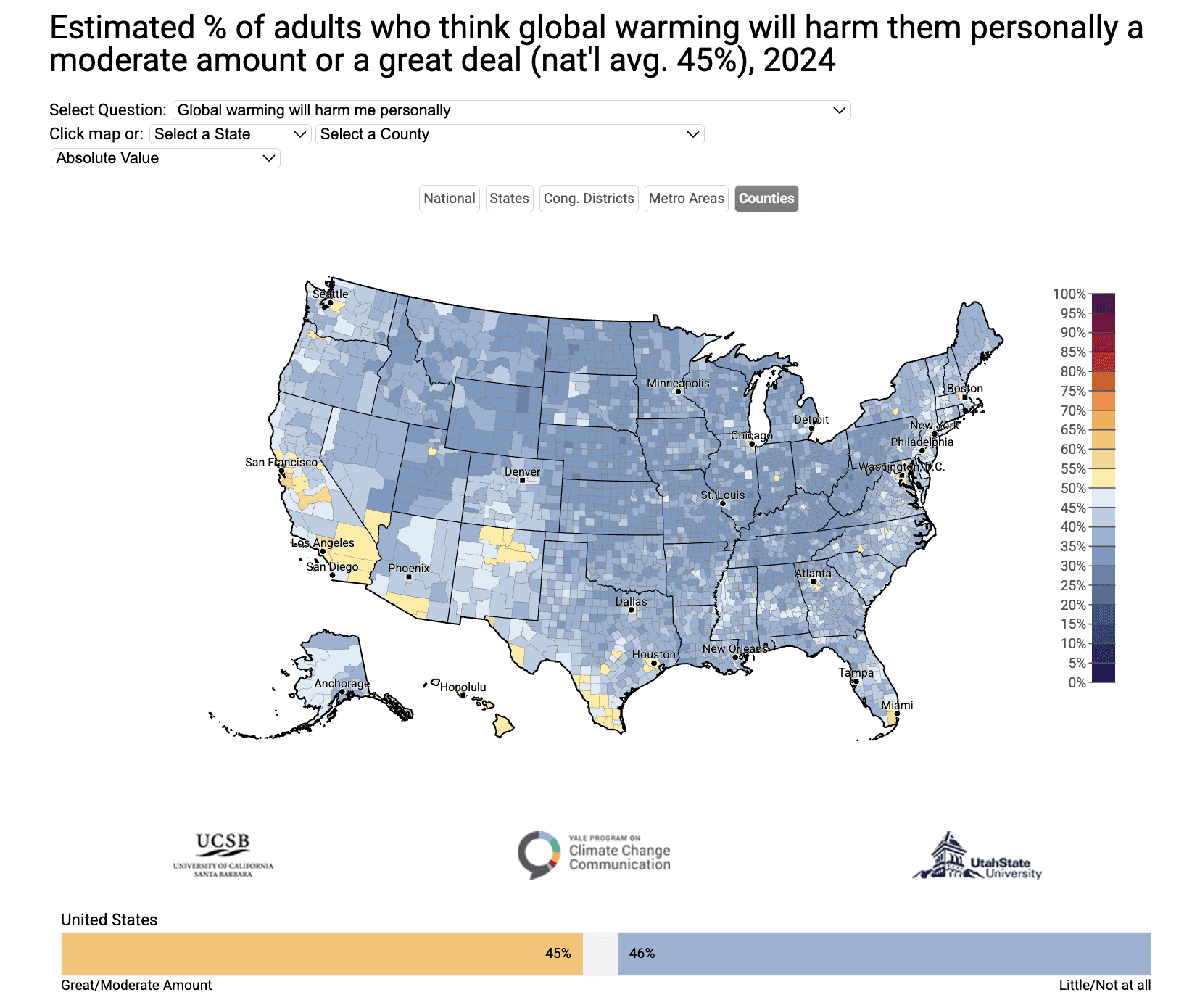
The divide in climate commitment across the globe poses a serious issue. While there are many nations and international organizations pushing climate friendly policies and goals, the current global effort is not enough.
The climate crisis is overwhelming and frightening, but there is still time to act. Climate awareness allows understanding of climate change and facilitates impactful behavioral changes.
As renowned climate scientist Katharine Hayhoe encourages, we can find common dialogue and focus, collectively, on saving us.
Global warming tied to climate change is already here as we confront extreme heat, fire weather, ocean warming (sea level rise) and acidification, intensifying storms, and droughts.
Climate change is not a problem that might concern us sometime in the future. There can be no significant step toward action without awareness and support first.
